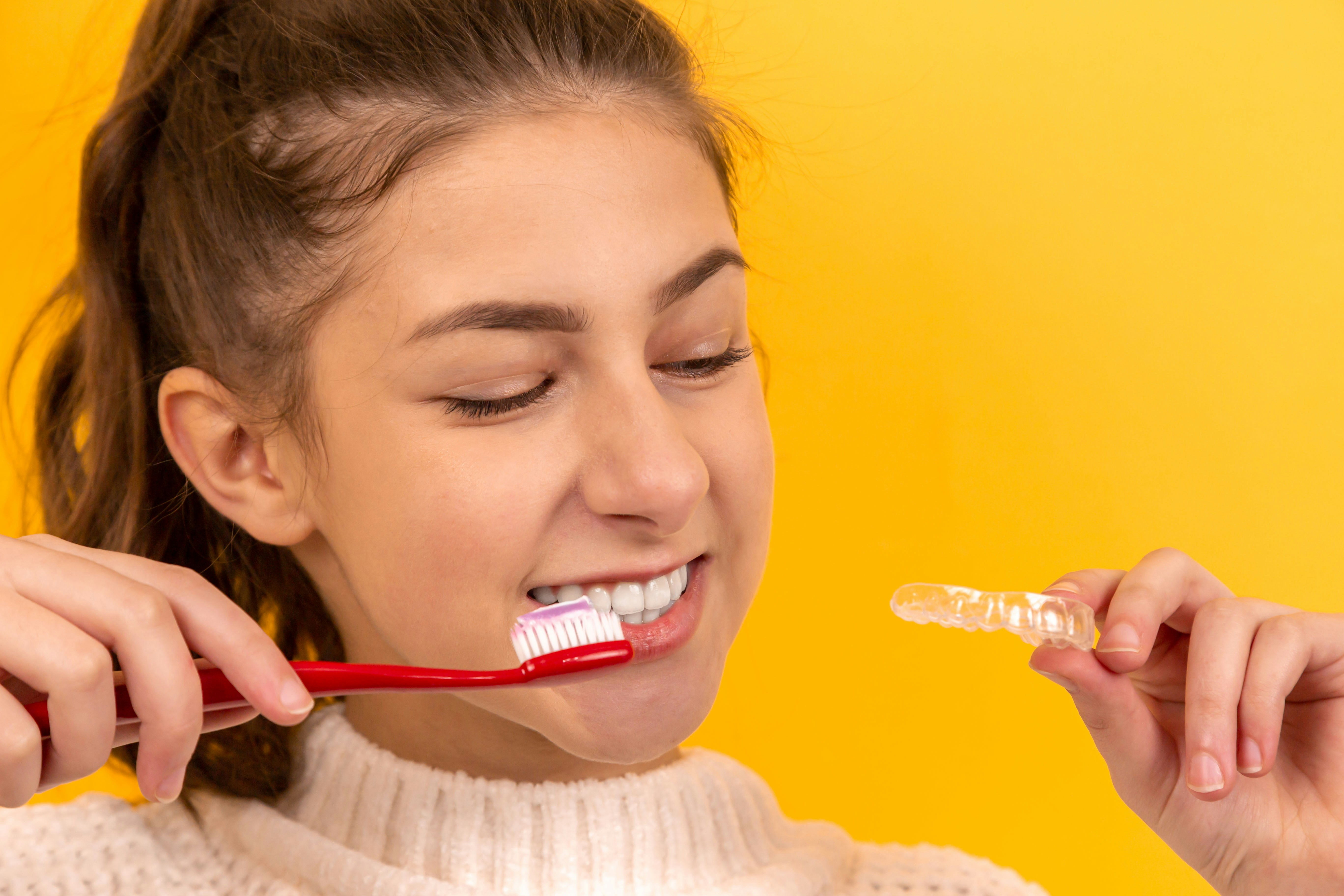Oral Hygiene Tips for Kids: Building a Strong Foundation for a Lifetime of Healthy Smiles
- 16 Sep 2024
- 0 Comments
- Dental Health Tips
As a parent or caregiver, ensuring that your child develops good oral hygiene habits from a young age is one of the most important things you can do for their overall health. Establishing a solid dental routine not only prevents cavities and gum diseases but also sets the stage for a lifetime of healthy smiles. As a dental surgeon and implantologist, I have seen how early intervention and education can make a significant difference in a child’s oral health journey.
In this blog, I will share detailed oral hygiene tips for kids that every parent should follow, along with important factors to consider in your child’s dental care routine.
Why is Oral Hygiene Important for Kids?
Good oral hygiene in children is crucial because:
• Preventing Tooth Decay: Children’s teeth are more vulnerable to decay than adult teeth. Proper oral hygiene helps prevent cavities, which, if left untreated, can lead to pain, infection, and even early tooth loss.
• Healthy Permanent Teeth: Baby teeth act as placeholders for permanent teeth. Poor dental care can damage these “guide teeth,” leading to improper growth and alignment of permanent teeth.
• Building Healthy Habits: Introducing good dental practices early creates habits that your child will carry into adulthood, reducing the risk of dental issues later in life.
Key Oral Hygiene Tips for Kids
1. Start Early: Clean Your Baby’s Gums
Oral care should begin even before your baby’s first tooth appears. After feeding, gently clean their gums with a soft, damp cloth or a baby-friendly gum brush. This helps remove bacteria and gets your child accustomed to oral care early on.
• When to Start Brushing: As soon as the first tooth appears (usually around six months), begin brushing with a soft-bristled baby toothbrush and water.
2. Choose the Right Toothpaste
For children under three years of age, use a smear of fluoride toothpaste the size of a grain of rice. For children aged three to six, increase the amount to a pea-sized dab. Fluoride is essential for strengthening enamel and preventing cavities, but too much can lead to fluorosis, which causes discoloration of the teeth.
• Fluoride Toothpaste: Ensure the toothpaste has fluoride but avoid using too much to prevent swallowing excess fluoride.
3. Brush Twice a Day
Make brushing a consistent routine—twice a day, morning and night. Encourage your child to brush for at least two minutes each time, focusing on all areas of the mouth: front, back, top, and tongue.
• Brushing Technique: Show your child how to angle the toothbrush at 45 degrees to the gums and use gentle, circular motions to clean each tooth.

4. Supervise Brushing and Flossing
Children often need help brushing their teeth properly until about the age of 6 or 7. Supervise them to ensure they’re brushing all surfaces of their teeth and not swallowing toothpaste. Around age 6, you can introduce flossing to clean between their teeth where the toothbrush can’t reach.
• Flossing Tip: Use kid-friendly floss picks or dental floss to gently slide between the teeth, paying extra attention to areas prone to plaque buildup, like the back molars.
5. Introduce Fluoride Mouthwash (If Needed)
If your child is prone to cavities, consider introducing a fluoride mouthwash after they learn how to spit (usually around age 6). Fluoride mouthwash provides extra protection against decay by strengthening the enamel.
• Note: Always consult with your dentist before starting your child on fluoride mouthwash, especially if they are already getting fluoride from other sources (e.g., toothpaste and drinking water).
6. Limit Sugary Snacks and Drinks

Diet plays a critical role in oral health. Frequent consumption of sugary or starchy foods like candies, cookies, and chips, along with sugary drinks like juices and sodas, can lead to tooth decay. Bacteria in the mouth feed on sugars and produce acids that erode tooth enamel.
• Healthy Snack Alternatives: Opt for fruits like apples, vegetables like carrots, cheese, and yogurt, which help neutralize acids and promote saliva production, protecting the teeth.
• Water as the Best Drink: Encourage water as the go-to beverage, especially after meals, to help rinse away food particles.
7. Make Dental Visits Regular
Routine dental checkups should start as early as the first birthday or when the first tooth appears, whichever comes first. After that, regular visits every six months are recommended to ensure your child’s teeth are developing properly and to catch any potential problems early.
• Preventive Care: A dentist can also apply sealants to your child’s molars to prevent decay. These protective coatings fill in grooves in the teeth, making them easier to clean.
8. Use the Right Toothbrush
Choosing the right toothbrush for your child’s age is important. For younger children, use a toothbrush with a smaller head and soft bristles. Electric toothbrushes can also be a fun and effective option for older kids, as they often have built-in timers to ensure proper brushing.
• Toothbrush Replacement: Make sure to replace the toothbrush every 3-4 months, or sooner if the bristles are frayed.
9. Make Oral Hygiene Fun
Kids are more likely to follow good oral hygiene practices if they find them fun and engaging. Make brushing a game by using a timer or a fun toothbrush with their favorite character. You can also use apps or songs that last two minutes to ensure they’re brushing long enough.
• Reward Systems: Create a reward system where your child earns stickers or small rewards for brushing and flossing consistently.
10. Lead by Example
Children are great mimics, and the best way to instill good oral hygiene habits is by setting a good example. Let your child see you brushing and flossing regularly, and make it a family routine. When children observe that oral care is important to you, they’re more likely to adopt the habit themselves.
Common Dental Problems in Children and How to Prevent Them
1. Tooth Decay (Cavities)
Cavities are the most common dental issue among children. They are caused by plaque, a sticky film of bacteria, which forms on the teeth and turns sugars from food into acids that erode tooth enamel.
• Prevention: Regular brushing, flossing, and limiting sugary foods help prevent cavities. Fluoride treatments and dental sealants can provide extra protection.
2. Gum Disease
Gingivitis, an early form of gum disease, can occur in children if proper oral hygiene is not maintained. Signs include red, swollen, and bleeding gums.
• Prevention: Encourage regular brushing and flossing, and make sure your child has routine dental cleanings to prevent plaque buildup.
3. Dental Injuries
Children, especially active ones, are prone to dental injuries like chipped or knocked-out teeth.
• Prevention: If your child plays sports, make sure they wear a protective mouthguard to safeguard their teeth.
Special Tips for Toddlers and Preschoolers
Toddlers and preschoolers require special attention when it comes to oral hygiene. Here are some specific tips for them:
• Avoid Bottle Feeding at Night: Prolonged bottle-feeding or putting a baby to bed with a bottle can lead to “baby bottle tooth decay.” Stick to water at bedtime if needed.
• Limit Pacifier Use: Prolonged use of pacifiers or thumb-sucking can affect the alignment of your child’s teeth. Try to wean them off by age 2-3.
• Encourage Healthy Teething Habits: During teething, your child might experience discomfort. Give them a clean, cold teething ring or a chilled cloth to chew on to soothe their gums.
Conclusion
A child’s journey to a healthy smile begins at home. By establishing good oral hygiene habits early, such as regular brushing, flossing, healthy eating, and routine dental checkups, you’re laying the foundation for your child’s lifelong dental health. As a dental surgeon, I have seen first-hand how these small steps can prevent bigger problems down the road and ensure your child has a strong, healthy smile as they grow.
Remember, oral health is closely connected to overall health, so the effort you put into maintaining your child’s teeth and gums will pay off in the form of fewer dental issues, a positive self-image, and better general well-being.
If you have any concerns or questions about your child’s oral hygiene, always feel free to consult with your pediatric dentist. They can provide personalized guidance and ensure your child is on the right path to a healthy smile.

